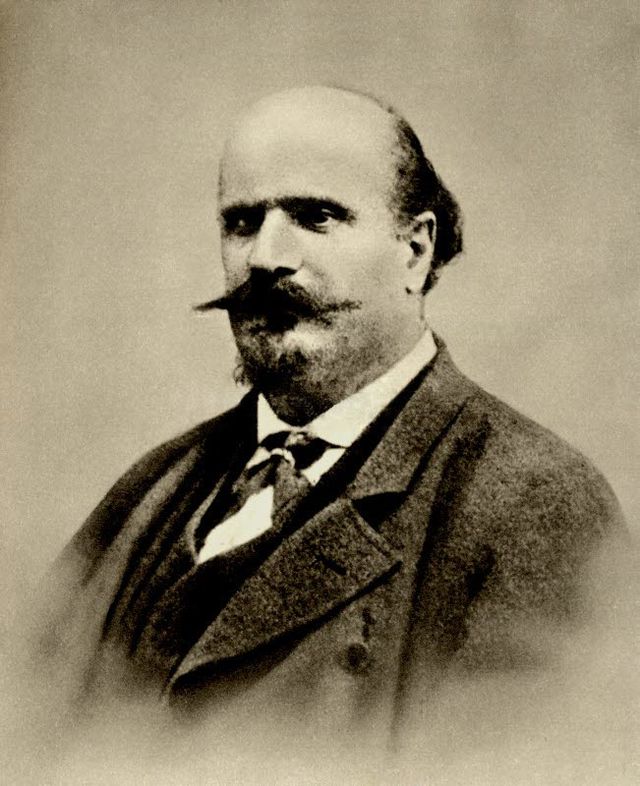Top Qs
Timeline
Chat
Perspective
Temistocle Solera
Italian opera librettist From Wikipedia, the free encyclopedia
Remove ads
Temistocle Solera (25 December 1815 – 21 April 1878) was an Italian opera composer and librettist.

Life and career
He was born in Ferrara. He received his education at the Imperial College in Vienna and at the University of Pavia. Throughout his life he actively participated in anti-Austrian resistance. At one point, he was incarcerated for his activities. He completed several literary works, including the novel Michelino, his style influenced by Alessandro Manzoni. He then found work as a librettist; his collaboration with the composer Giuseppe Verdi began in 1839 and lasted for a few years.[1]
Solera then found work as the impresario for the Royal Theatre in Madrid. He died in Milan in 1878.[1]
Remove ads
List of major works
Composer
- Ildegonda (1840)
- Il contadino d'Agliate (1841; rev. as La fanciulla di Castelguelfo in 1842)
- Genio e sventura (1843)
- La hermana de Pelayo (1845)[2] (Pelayo is a Spanish national hero, the leader of Christian resistance in the Cantabrian mountains against the Arab invasion in the early eighth century)
Librettist
- For Giuseppe Verdi
- Oberto, conte di San Bonifacio (1839)
- Nabucco (1842)
- I Lombardi alla prima crociata (1843)
- Giovanna d'Arco (1845)
- Attila (1846)
- For other composers
- Galeotto Manfredi (Carlo Hermann; 1842)
- La conquista di Granata (Emilio Arrieta, 1850)
- La fanciulla delle Asturie (Benedetto Secchi; 1856)
- Sordello. Also produced as L'Indovina (Antonio Buzzi, 1856; Salvador Giner Vidal, 1870)
- Pergolese (Stefano Ronchetti-Monteviti, 1857)
- Vasconcello (Angelo Villanis; 1858)
- Una notte di festa (Angelo Villanis; 1859)
- L'espiazione (Achille Peri, 1861)
- Zilia (Gaspar Villate, 1877)
Remove ads
References
External links
Wikiwand - on
Seamless Wikipedia browsing. On steroids.
Remove ads
